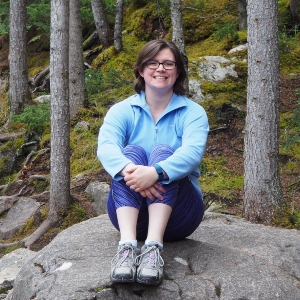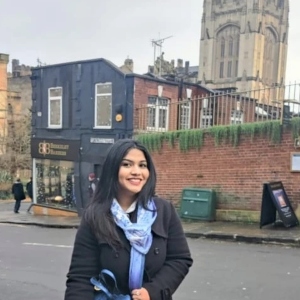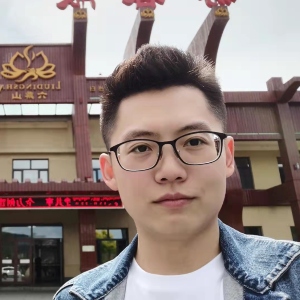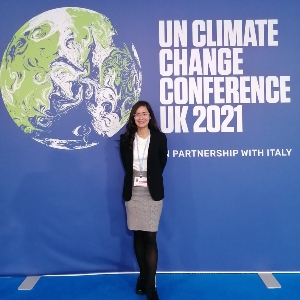Faculty team
Professor Guy Howard, Global Research Chair Environmental and Infrastructure Resilience

Professor Guy Howard is a water scientist and engineer with a background in policy and research in low and middle income countries. Before joining the University of Bristol, he spent over 15 years at the Department for International Development (DFID) in a variety of roles related to water services and management. For the last six and half years at DFID, he was the policy lead for water, sanitation and hygiene (WASH) for the UK Aid programme.
Guy’s research interests fall into 3 broad areas:
1. The relationships between WASH and health. This includes both tackling long-standing problems of infectious and non-communicable disease by basing design on better understanding of disease aetiology, and emerging issues of anti-microbial resistance and changing disease patterns linked to climate change.
2. Building resilience of communities and the services they rely on to short-term shocks and long-term environmental risks. This has a focus on climate change and water services (domestic and productive), but also the inter-connectedness of multiple hazards and the cascading of risks through social and economic systems.
3. Understanding policy responses to environmental changes and in particular how community- government and private sector systems can adapt to change and drive through win-wins in terms of resilience and development.
Dr Anisha Nijhawan, Research Associate, WASH and Environmental Health

Dr. Anisha Nijhawan is an engineer and researcher with a background in water quality and safety in low- and middle-income countries.
Anisha did her PhD in Environmental Engineering from the University of Oklahoma in the United States where she developed a low cost absorbent ceramic material and investigated its potential to remove excess fluoride from groundwater. Prior to her doctoral research, Anisha worked at the National Environmental Engineering Research Institute (NEERI) in India where her work involved developing and evaluating the impact of Water Safety Plans in urban water supplies, studying the risk factors behind re-contamination of water during household storage and investigating public acceptance of artificial aquifer recharge.
Anisha’s research interests include drinking water treatment and public health, water quality impacts of climate change, Water Safety Plans, and climate resilience of water supplies and sanitation in low- and middle-income countries.
Dr Sally Weston

Dr Sally Weston is a water engineer who focuses on the sustainable provision of safe piped drinking water in low resource communities. Sally completed her PhD at the University of Sheffield where she demonstrated the ability of dynamic hydraulic forces to mobilise material adhered to the inside wall of drinking water distribution systems. As a Research Associate, she has applied her hydraulic knowledge to intermittently piped systems in the Global South and developed practitioner-focused tools for water quality management in Canada. Her work at the University of Bristol will support research on resilience of water and sanitation services to climate change. Her main projects are:
-
- A scoping review of experience in Africa in supporting low-income communities get access to on-gird services (water, sanitation, and mains power)
- Developing engineering interventions to reduce the transmission of leptospirosis in Brazilian communities
- Field work in Kenya to explore the impact of drinking water supply schedules on public health and wellbeing.
Research students
Anjali Manandhar Sherpa
Information to follow.
Ritah Pavin Nakanjako
Ritah is doing a PhD looking at adaptation to heat in low-income housing and manual labourers in Africa and will be linked to the HABVIA project.
Olivia Reddy, PhD Researcher

Olivia’s research is focused on SDG 6, assessing sanitation management systems, infrastructure resilience and the associated greenhouse gas emissions.
Aakanksha Pathania

Aakanksha is a PhD student who is focusing on reducing the health burden caused by waterborne diseases in India. She is a Water, Sanitation and Hygiene (WASH) Policy Researcher who has been professionally associated with International NGOs, Grassroots NGOs, Development Agencies, and Corporates. She has over 7 years of experience of working as a field and desk researcher in the development sector across 14 Indian states on Rural Water Security, Water Quality Monitoring and Surveillance, Transboundary Water Governance, Water-related diseases like Fluorosis, Arsenicosis, Gender and Water, Climate Change, Impact Assessment of Disaster Relief Projects, WASH Needs Assessment, Assessment of Swachh Bharat Mission (Gramin), Jal Jeevan Mission, Faecal Sludge Management, Solid Waste Management, Manual Scavenging and Menstrual Hygiene Management.
Her current research interests are centred around improving drinking water security for marginalized communities by understanding public health implications of microbiological contamination of groundwater in developing countries.
Weichen Zhong

Weichen Zhong is a PhD student with a background in water treatment engineering, decarbonisation policy and environmental economics. His research interests include decarbonisation strategies, sustainable development, natural hazard resilience and urbanisation.
Weichen’s doctoral study focuses on the carbon burden of post-flood road restoration, urban infrastructure resilience and decarbonisation strategies.
MScR students
Ana Maria Silva

Ana Maria is an environmental engineer with a background in water and sanitation in low-income communities in rural and urban areas of Brazil.She worked as a consultant with an NGO and government institutions to improve water supply services, water quality monitoring and management in rural communities of Bahia, NE, Brazil. Ana Maria also participated in projects related to water, sanitation, drainage, and waste management planning for urban areas.Currently, Ana Maria is an MScR Global Environmental Challenges student looking at environmental engineering controls for leptospirosis transmission in urban slums in NE Brazil.
Isabel Harding
I studied medicine at Nottingham University and worked as a doctor in the NHS for over 10 years, latterly as a GP.
I am interested in the impacts of climate change on health and am currently researching the effects of extreme weather events on nutrition in the first 1000 days of life in low and middle income countries.
Arleen Lezcano

Arleen is BSc. in Environmental and development engineer from Zamorano Agricultural University in Honduras with a diploma in adaptation to climate change. Her research experience includes studies of water quality in Panama, vulnerability analysis of agricultural systems to climate variability in Honduras, women’s involvement in the climate Change National Communications (TNC) on Climate Change of Panama for the UNFCC.After four years working closely with farmers through consultancy, NGO´s, public sector and international cooperation, promoting and implementing sustainable agricultural systems, reforestation, and waterbodies protection in Panama, she decided to return to academia to try to find answers to questions that the work field brought.
Trying to address some of those questions she is studying a Master by research in Global Environmental Challenges from the Cabot Institute of the University of Bristol. Her research focuses in understanding drivers that influence farmer’s decisions in the UK to use or not to use pesticides, specifically fungicides. The findings of the study aim to contribute to tackling antimicrobial resistance (AMR) emergence due to the water pollution that pesticides, specifically, azoles-based fungicides produce.
Her research areas of interest are:
- Impacts and adaptation climate change in agriculture.
- Ways to reduce vulnerability to climate change in tropical regions.
- Carbon emissions reduction, carbon storage, and circular economy.
- Environmental policies and behavior change
Eimear Griffin
Eimear completed her BSc in Biomedical Sciences at the University of Bristol, so she has a background in areas such as biochemistry, virology, infectious diseases and cancer biology. Since then, her research interests have expanded and she is now looking at the link between health and the environment, particularly in low- and middle-income countries.
In order to explore this, she is undertaking an MScR in Global Environmental Challenges which is focused on the interaction between water, sanitation, and mosquito infestation levels on dengue virus transmission in disadvantaged communities of Salvador, Brazil. Her research will involve assessing sanitation infrastructure and water management within these communities to identify environmental vulnerabilities that facilitate the spread of dengue virus.
This study aims to highlight high-risk areas for dengue virus transmission and contribute towards finding solutions to reduce the health burden caused by this disease.
Collaborators
Project Coordination
Clare Williams, Research Project Coordinator

Clare provides operational support to the WASH group led by Guy Howard in Civil Engineering. She coordinates a range of projects and this involves arranging meetings and workshops with external partners such as WHO and UNICEF as well as other universities across Africa and Asia. Clare is also responsible for maintaining and developing the WASH website and social media.
Clare has worked at the University of Bristol since 2003 and has substantial experience of supporting multidisciplinary scientific projects.

